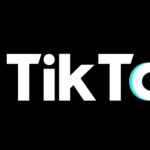
The Director General of NAFDAC, Prof Mojisola Adeyeye made this known at a joint press conference with the Director General of NHIA, Prof Mohammed Sambo in Abuja on Thursday.
Adeyeye noted that under the NHIA Medicine Supply Initiative, 33 drugs would be branded with NHIA inscription and NAFDAC, through the Directorate of Registration.
She also said the Regulatory Affairs will ensure that appropriate and adequate labelling of the medicines is met in line with the agency’s labelling requirements and in accordance with NHIA guidelines.
She stated that the branding of NHIA medicines and other health products was introduced as a way to help eradicate out-of-stock syndrome, as well as ensure the quality of its medicines.
The don noted that NHIA signed a Memorandum of Understanding with Pharmaceutical Companies and Drugs Management Organisations for the production of 33 different drugs to address the perennial problem of out-of-stock syndrome in the nation’s health facilities.
Under the initiative, 12 pharmaceutical companies will be branding 33 products for the health insurance ecosystem in the first phase.
She disclosed that NHIA has already chosen seven states (Delta, Enugu, Gombe, Jigawa, Niger, Osun and Sokoto states) and the Federal Capital Territory for the pilot phase of this initiative.
Adeyeye also said the categories of drugs involved will start from simple to complex, which will be used to address prevailing health conditions in Nigeria, such as malaria, upper respiratory tract infections, childhood illnesses and drugs being used by pregnant women. As mentioned earlier, every drug to be manufactured will be certified and approved by NAFDAC, in terms of quality, safety and efficacy.
“The Executive Order 3 on support for local content in public procurement by the Federal government requires that All MDAs shall grant preference to local manufacturers of goods and service providers in their procurement of goods and services.
“It was based on this collaboration with NAFDAC and in line with EO3, that NHIA worked with Local Pharmaceutical Manufacturers whose manufacturing facilities have been approved by NAFDAC as meeting Good Manufacturing Practice requirements for the procurement of needed medicines. These manufacturing companies have also had their products registered by NAFDAC. This means that all the attributes of quality, safety and efficacy pertaining to these products have been duly assured by NAFDAC,” she said.
The PUNCH reports that the Federal Government launched the operational guidelines for the 2022 National Health Insurance Authority Act on Tuesday, as part of efforts to ensure all Nigerians have access to affordable healthcare services.
The operational guidelines are crucial to clarifying the roles, responsibilities, and obligations of various stakeholders in the health sector because access to affordable quality health care for all Nigerians is key on the path to achieving Universal Health Coverage.
“NAFDAC carries out this mandate by ensuring appropriate documentation of product attributes (Dossier Assessment), conducting inspections of manufacturing facilities to ensure they comply with good manufacturing practice requirements, laboratory evaluation of products to ensure compliance with quality attributes, granting marketing authorization, conducting post-marketing surveillance to monitor products on the market for continued compliance with quality and safety requirements among others.
“NAFDAC has in the past five years developed a GMP Roadmap which continuously assures that pharmaceutical manufacturers in Nigeria remain compliant with global best practices. The GMP roadmap was designed to guide and help local manufacturers upgrade their facilities and procedures in line with current good manufacturing practice requirements. This initiative has enabled the agency to establish a baseline for monitoring compliance,” she said.
Meanwhile, the Director General of NHIA, Sambo said that the branding of medicines and other health products aims to facilitate the supply of affordable, acceptable, accessible, available, and quality medicines and other health products.
He noted that the initiative is to enhance the production of high-quality medicines to inspire users’ confidence ans also help to reduce the cost of medicines especially that of intravenous fluids which will reduce by as much as 50 per cent of the current market price based on NHIA negotiations with the manufacturers without compromising standards and quality.





